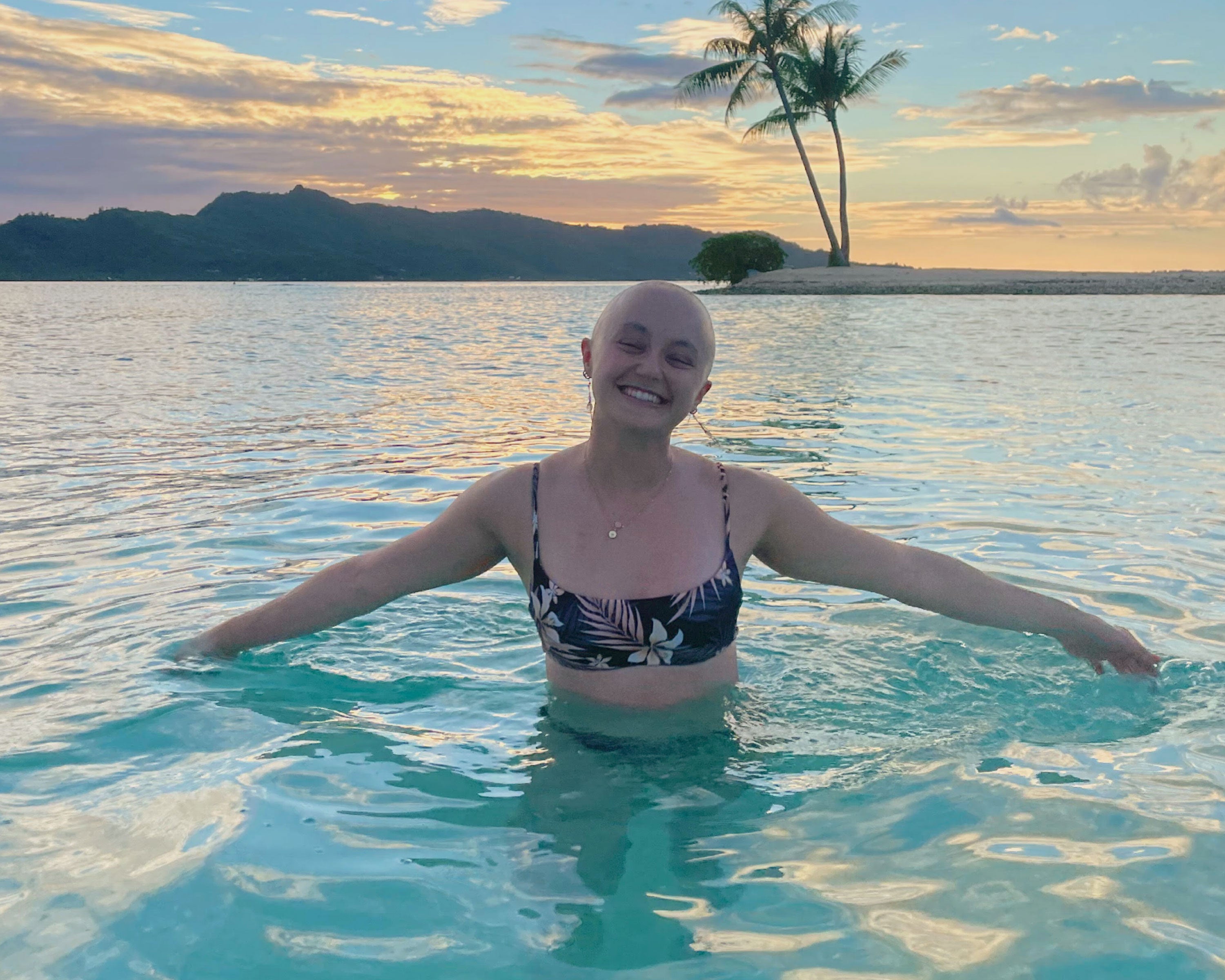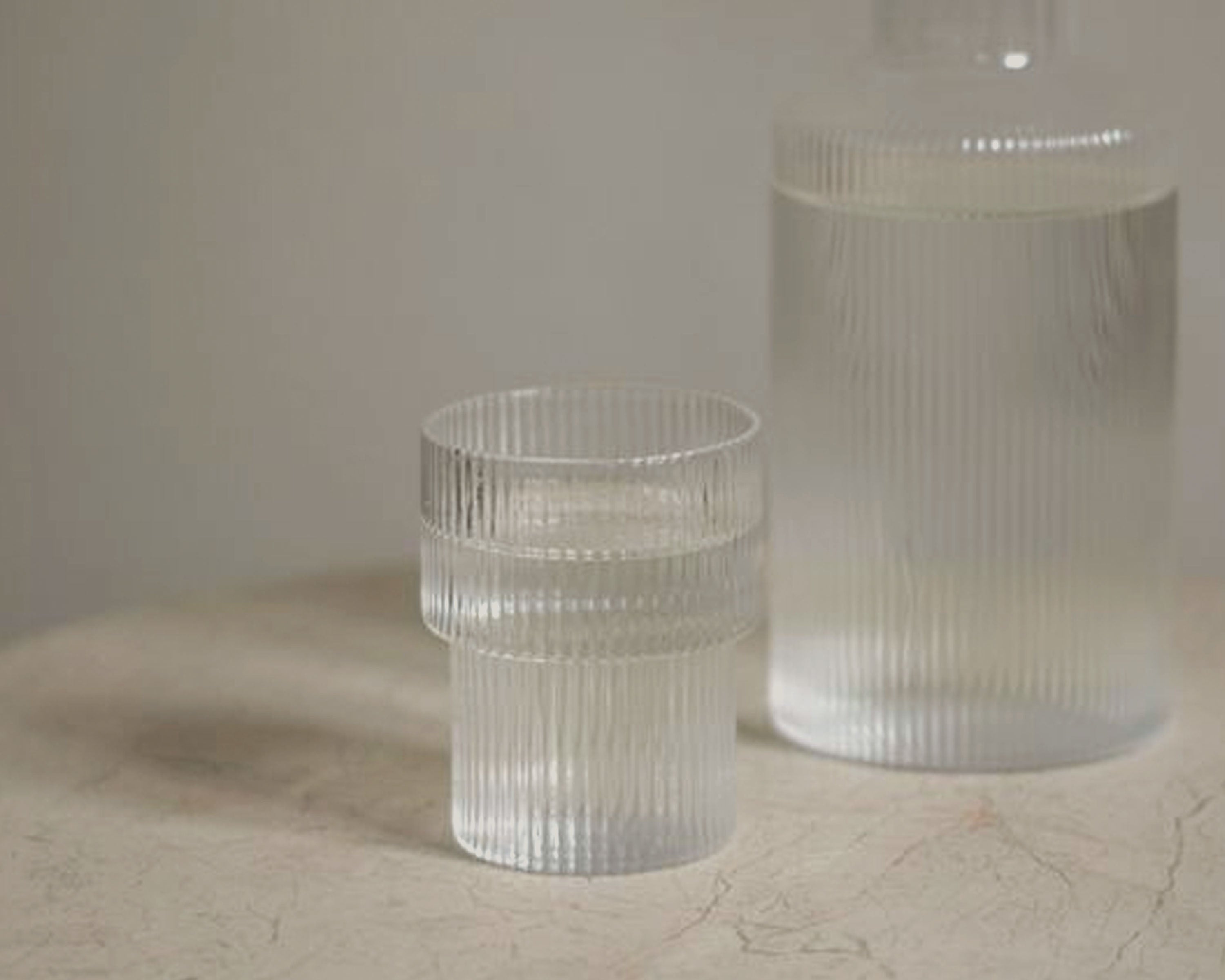Real Talk
“I Felt Like a Cancer Fraud”: What Happens When You Compare Your Cancer to Others’
In the spring of 2009, I found myself in an OB-GYNs office trying to understand why I yet again had to hide out in the bathroom at work because I was bleeding through three super tampons every hour. And why I bled during sex. And why I bled every time I went to the bathroom. My doctor’s response shocked me more than the bleeding: “You’re being dramatic, it’s just spotting.” She may have gone as far to call me “hysterical.” Despite not possessing a medical degree, I knew it was way more than that, but I kept managing the situation on my own, hoping it would go away.
Six months later, a friend of mine insisted I go to see her doctor. In fact, she made the appointment for me as I texted her from the bathroom stall in my office high-rise. This new OB-GYN examined me and suspected a polyp might’ve been irritating my cervix. So we did a biopsy, and a couple of days later, I got a call asking me to come into the office, which is never what you want to hear.
I'll paint you the picture. I am 30 years old. I’m dressed in a pencil skirt, black blouse, coiffed with freshly blown out hair especially for this occasion. I channeled Joan from Mad Men for this appointment — if I looked good, I was not going to get bad news. Maybe she’s having me go in to tell me I’m pregnant, I thought to myself.
Instead, she told me I had cervical cancer. More specifically, a glandular tumor (adenocarcinoma) that originated in my uterus and grew all the way through my cervix. I didn’t know much about cervical cancer but I did know that it was very rare for someone my age (the average age of diagnosis is 50). Within a matter of weeks and several small surgeries, I discovered I’d need a hysterectomy and a lymphadenectomy. But the idea of telling people about my “vagina cancer” or talking to them about the hysterectomy filled me with so much embarrassment — so I told hardly anyone.
Keeping cancer a secret makes it easier in some ways — and a lot harder in others.
I didn't look sick, which in some ways made things more difficult, as I could get by without people knowing what I was going through. I found myself telling random cab drivers that I was on my way to get an MRI because I had cancer...but I didn’t have it in me to talk to my closest friends about it. Because I wasn’t open, I could put my head down and work and not think about what was happening. But on the other hand, because no one knew, well, no one knew. So when people would ask me when I was going to have children, it broke my heart. And when people would offer me their seat on the subway (because I looked like a very thin person who had a big belly), I couldn’t say, “I’m not pregnant — that’s just the scar tissue left over from my hysterectomy and lymphadenectomy.” It was painful.
“Treatment guilt” is common — but I thought I was the only one.
While originally I thought I would have to go through radiation, my doctors decided that the surgeries had done their job — I had 24 lymph nodes removed, which is a lot for your groin. While this should have brought me relief, it also made me feel guilty — I took it as a sign that I didn't have “enough” cancer. I felt guilty that I didn't have to go through chemo hell; that I didn't lose my hair; that I “just” needed surgery; that I didn’t have my breasts removed.
That's another reason why I didn’t talk about my cancer for so long — I felt like a cancer fraud. At the time, being a woman who had cancer but didn't have breast cancer felt isolating. Breast cancer awareness, pink ribbons, breast cancer walks — those were the things on people’s radar. In fact, when I was first diagnosed, my best friend showed up at my door with pink breast cancer awareness cupcakes. I thought, “Well, close enough!” Looking back, I wish I had found someone my age to connect with who had my specific type of cancer and could help validate my experience and all of the complex emotions that came with it.
Cancer can make it feel as though your body has betrayed you.
I have always been a very physical, sexual person. Then I got cancer, and my lady parts were basically put on ice. After my diagnosis, I wasn’t cleared to have intercourse for nearly a year...just another thing I felt cancer “took” from me. But there was also a strain on my relationship with myself. I felt extremely disconnected from my body. I couldn’t shake the feeling that my body had betrayed me. In fact, it somehow got itself into a cellular position where it could kill me. How could I trust this body again?
In the biggest of ironies, the day I had my hysterectomy was also the day two of my best friends both found out they were pregnant with their second kids. That impacted me for a long time. My uterus was long gone and I had nonstop reminders around me reinforcing the messages I’d heard all my life: We're taught as women that one of the reasons we're on this planet is to have a family and have babies. (Yeah, I know, my parents are pretty old school.) It made me feel incredibly bad about myself. Who am I if I’m not a mother? Am I still a woman? I mean, of course I am! Not all women have a uterus and not everyone with a uterus is a woman. But that was something I really struggled with and had to work through.
Doctors are focused on saving your life, but saving my quality of life was also important.
One of the things that still shocks me is that nobody on my care team offered me pelvic floor therapy. For weeks after my surgery, I’d leak pee...just like someone who had just given birth. I thought my only option was kegels — which I was really bad at. And all these years later, I still have an extremely weak core, scar tissue that messes with my bathing suit confidence, and a re-made vaginal canal that sometimes makes sex uncomfortable. When I told my providers, they suggested I order dilators, which I call vagina retainers, but no one really instructed me what regimen would help. Finally, three years ago, still suffering with many of these after-effects, I decided to see a pelvic floor therapist on my own. It helped, but I wish I hadn’t suffered alone for years. I always say that doctors are focused on saving your life (rightfully so), but I also needed to consider saving my quality of life.
This is one of the reasons I’m so passionate about our work at The Chick Mission, a nonprofit that covers the full cost of fertility preservation procedures for those with cancer. While many patients may want to consider freezing their eggs in order to preserve the option of having biological children one day, the health system doesn’t always make this a priority. In my own case, I lacked the guidance from my providers that I needed. And when I did finally look into it, my insurance company told me they would not cover this procedure, considering it “elective”... as if having a tumor was something anyone would choose.
Cancer grief can linger long after you’re in the clear.
There are plenty of ways to start a family, and they’re all valid. But when my “surg-aversary” rolls around most years, I find myself grieving that I can't have a family “the old fashioned way.” So many years later, I demand that I get out of my own way, as it relates to how I thought life would be. Many people in this world do not have the life they’d expected. But we’re all human and sometimes we feel sorry for ourselves.
The truth is, there's no way to predict when grief will creep up on me. Sometimes the sadness, pain and depression that would normally accompany a surg-aversary doesn’t hit me and everything’s fine. Sometimes it’s Mother’s Day that’s hard. And sometimes it’s just some random Tuesday! Whenever it strikes, nothing helps like talking to another cancer survivor who knows exactly what I’m feeling, because they’ve felt it, too. And if you’re in this shitty cancer club no one asks to join, know that I’m here to talk to you when you need someone who gets it.
* * *
Tracy Weiss is the Executive Director and Chief Creative Officer at The Chick Mission, a non-profit organization relentlessly focused on critical issues unique to cancer patients — including fertility challenges that may follow after surgery, chemotherapy, radiation and drug treatment.
This article is for informational purposes only and is not a substitute for medical advice, diagnosis, or treatment. Please keep in mind every individual’s situation is different, and you should not take any actions concerning your body and well-being before consulting with a healthcare professional.
Let your loved ones know what you actually need
Easily add items from the Alula shop to your registry, and share it with friends and family who ask.



